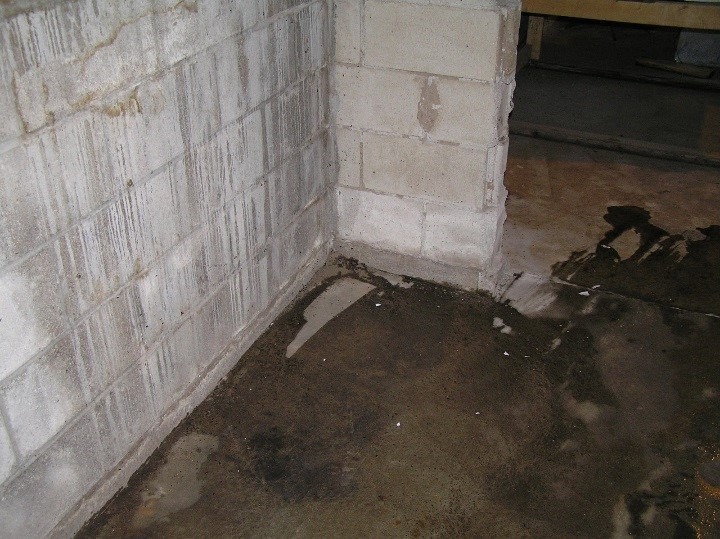


 A wet basement is one of the most common reasons a house fails the inspection phase of the home buying process. The most common reasons this problem occurs include insufficient sealant around windows, leaky pipes inside the wall, and (in my personal experience) the AC unit. Please note that this blog does not pertain to the damage that might be incurred from a natural disaster or weather conditions. These are not the only places that you have to worry about, however; water can also leak through the foundation. The latter is a costlier issue to deal with because it essentially involves having a professional coming in and digging up your entire basement foundation. Leaks can also be caused by gutters if there is a clog or a misalignment of the piping. To prevent this, you may have to have someone engineer the property in such a way that the land is sloped towards the street or road and water drains properly. These are all problems that can be corrected, but can scare off potential buyers. If for any reason, you as a homeowner are unable to fix the problem, let the inspector know and then price the home lower than what you originally planned. This adjustment will help offset the future cost of the repair for the homebuyer. If there are any more issues that the house has then the house may have to be marketed as a “project home” or “fixer-upper.” Remember, only a trained real estate agent can provide you with this specification. The best solution is to prevent leaks from happening in the first place. While problematic and often expensive, foundation issues can be fixed. Before you build, make sure the lot is flat and even. Trying to build on sloping property can lead to problems. Make sure that you have a drainage system with pumps so it doesn’t turn into a swimming pool under your foundation. While this is not a do it yourself (DIY) job, you can look up what will need to be done and then shop around for a reasonable rate. If a leak occurs due to the AC unit or a leaky window, then this is usually a simple matter of finding any problems with the pane itself or the AC unit and clearing clogs or seal breaks, and then resealing and/or the window. Keep in mind, most of these problems do affect older houses more often, so you will want to make sure that you get a solid inspection before you buy a problem. Contributed by James Link
A wet basement is one of the most common reasons a house fails the inspection phase of the home buying process. The most common reasons this problem occurs include insufficient sealant around windows, leaky pipes inside the wall, and (in my personal experience) the AC unit. Please note that this blog does not pertain to the damage that might be incurred from a natural disaster or weather conditions. These are not the only places that you have to worry about, however; water can also leak through the foundation. The latter is a costlier issue to deal with because it essentially involves having a professional coming in and digging up your entire basement foundation. Leaks can also be caused by gutters if there is a clog or a misalignment of the piping. To prevent this, you may have to have someone engineer the property in such a way that the land is sloped towards the street or road and water drains properly. These are all problems that can be corrected, but can scare off potential buyers. If for any reason, you as a homeowner are unable to fix the problem, let the inspector know and then price the home lower than what you originally planned. This adjustment will help offset the future cost of the repair for the homebuyer. If there are any more issues that the house has then the house may have to be marketed as a “project home” or “fixer-upper.” Remember, only a trained real estate agent can provide you with this specification. The best solution is to prevent leaks from happening in the first place. While problematic and often expensive, foundation issues can be fixed. Before you build, make sure the lot is flat and even. Trying to build on sloping property can lead to problems. Make sure that you have a drainage system with pumps so it doesn’t turn into a swimming pool under your foundation. While this is not a do it yourself (DIY) job, you can look up what will need to be done and then shop around for a reasonable rate. If a leak occurs due to the AC unit or a leaky window, then this is usually a simple matter of finding any problems with the pane itself or the AC unit and clearing clogs or seal breaks, and then resealing and/or the window. Keep in mind, most of these problems do affect older houses more often, so you will want to make sure that you get a solid inspection before you buy a problem. Contributed by James Link
Message has been sent!